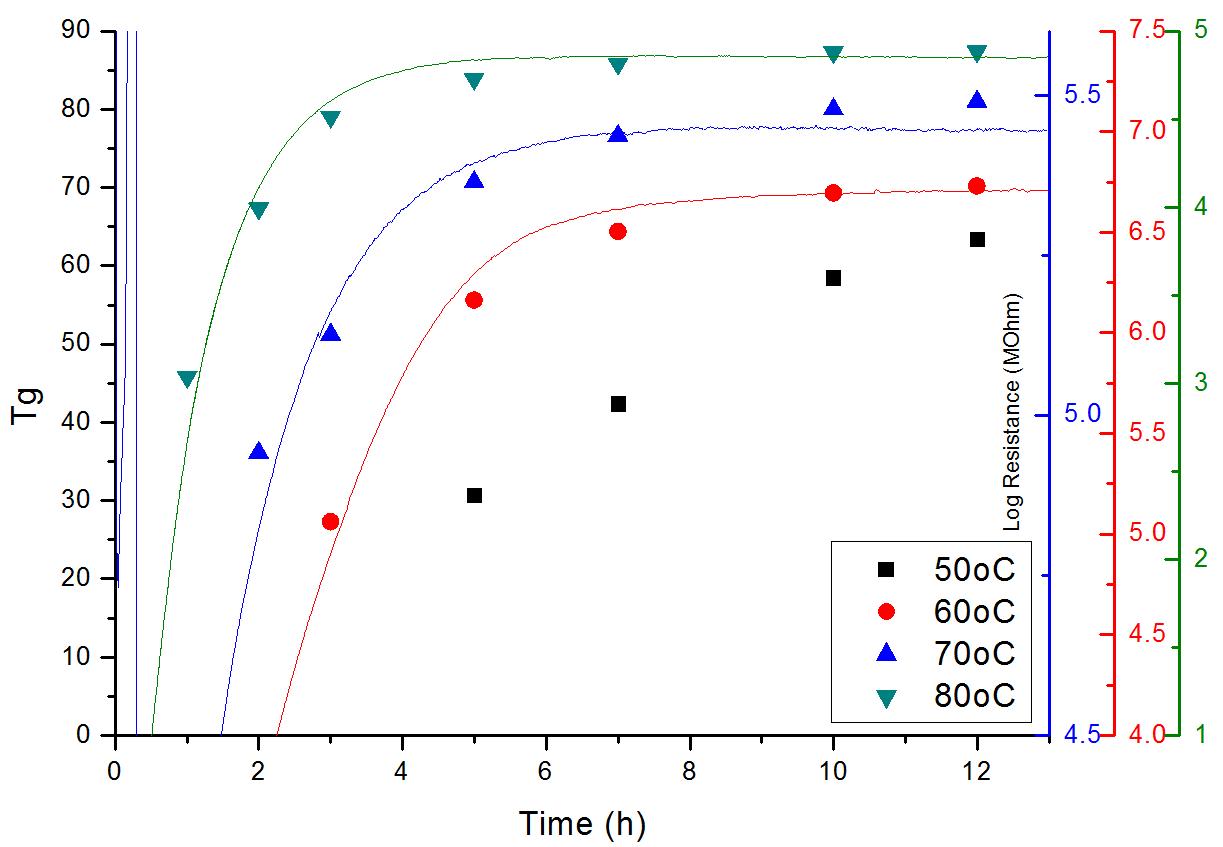
In most thermoset and reactive thermoplastic polymers the knowledge of how the resin is cured is essential for process development but also in mass production. For more than 30 years researchers have been studying the correlation between conductivity and cure of thermosetting polymers which has been considered as the most mature technology for industrial cure monitoring in composites manufacturing. However, to measure the resin’s conductivity, broadband dielectric spectroscopy has been used in most of the academic studies leading a variety of theoretical conclusions which demonstrate, on one side, the applicability of this technology for in-situ cure monitoring without providing the complete tools to use this technology at industrial conditions. In this aspect, Synthesites was founded in 2008 for the commercialisation of an industrial technology for measuring the conductivity of the resin using DC excitation in contrast to the dielectric spectroscopy which applies an AC excitation within a range of frequencies. This approach provides the users with the unique advantage of measuring the resistivity (inverse of conductivity) of the resin fast and accurately without the use of complicated and very expensive equipment. Although this might sound easy, at Synthesites took us more than 7 years to develop and optimise for composites processing, a monitoring system (Optimold) that can measure a wide resistivity range starting with values below 1 MOhm (105 Ohm) when the resin is hot and liquid and reaching up to tenths of TOhm (50*1010 Ohm) when the resin is cured and cold. The combination of this highly sophisticated monitoring system with a large variety of specially developed disposable and permanent sensors provide to the composites manufacturing community a unique opportunity to develop, monitor and intelligently control their manufacturing processes.
Combining this capability with the equally accurate temperature measurement it is possible to end-up with a real-time quantitative prediction of various process parameters such as viscosity evolution, chemical or storage aging, mixing ratio deviations and degree of cure and/or Tg. Based on this reliable measuring unit Synthesites went one step further to correlate in a quantitative manner the resistivity and temperature measurements to useful material properties. After more than 5 years of R&D, Synthesites can provide and support the unique intelligent monitoring of the progress of the curing by providing real-time quantitative indicators such as the degree of cure and the Glass Temperature build-up (Tg).
Last but not least, our exceptional technical support can ensure the most optimal usage of our technology adapted to the specifications of each unique application. Together with our customers, we can guide them in order to take full advantage of our technology and can walk hand-in-hand together towards the successful performance of our systems. After all, our happy customers are the best advertisement of our products.


